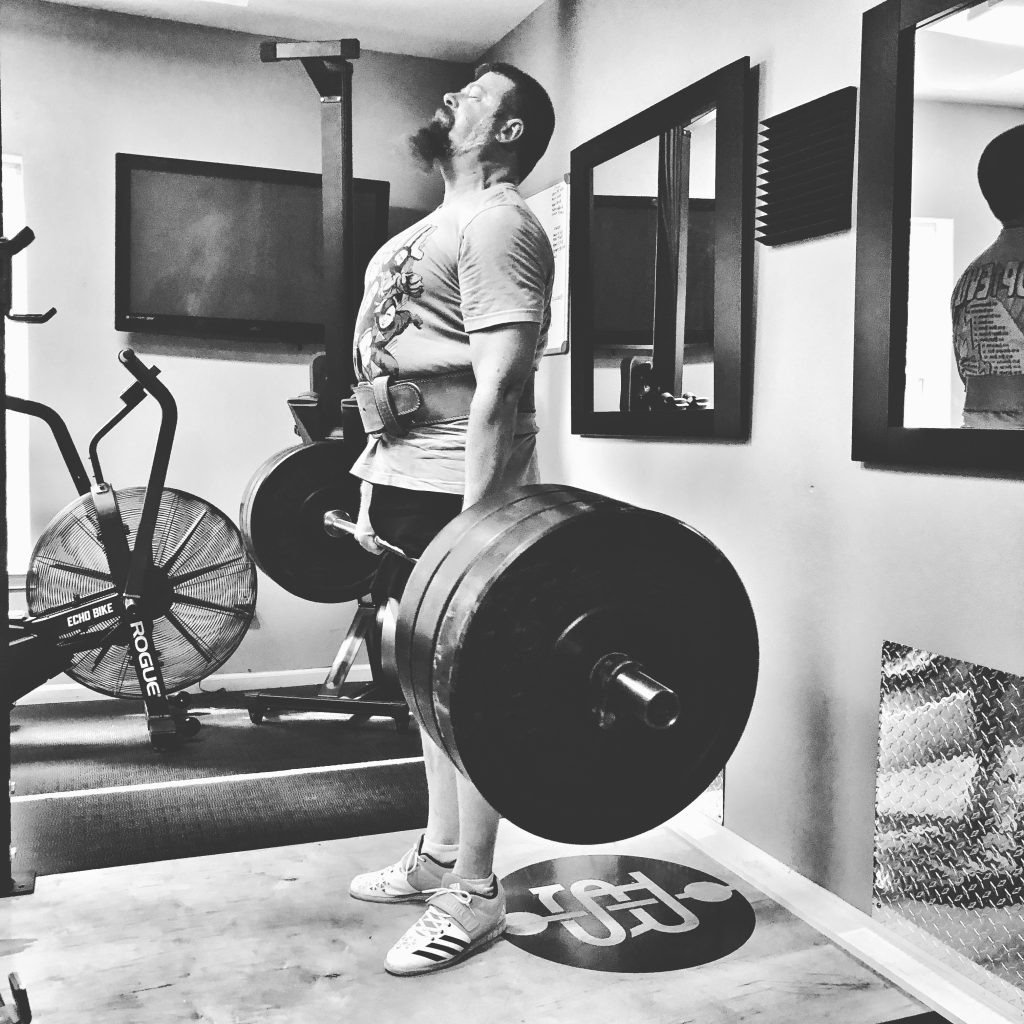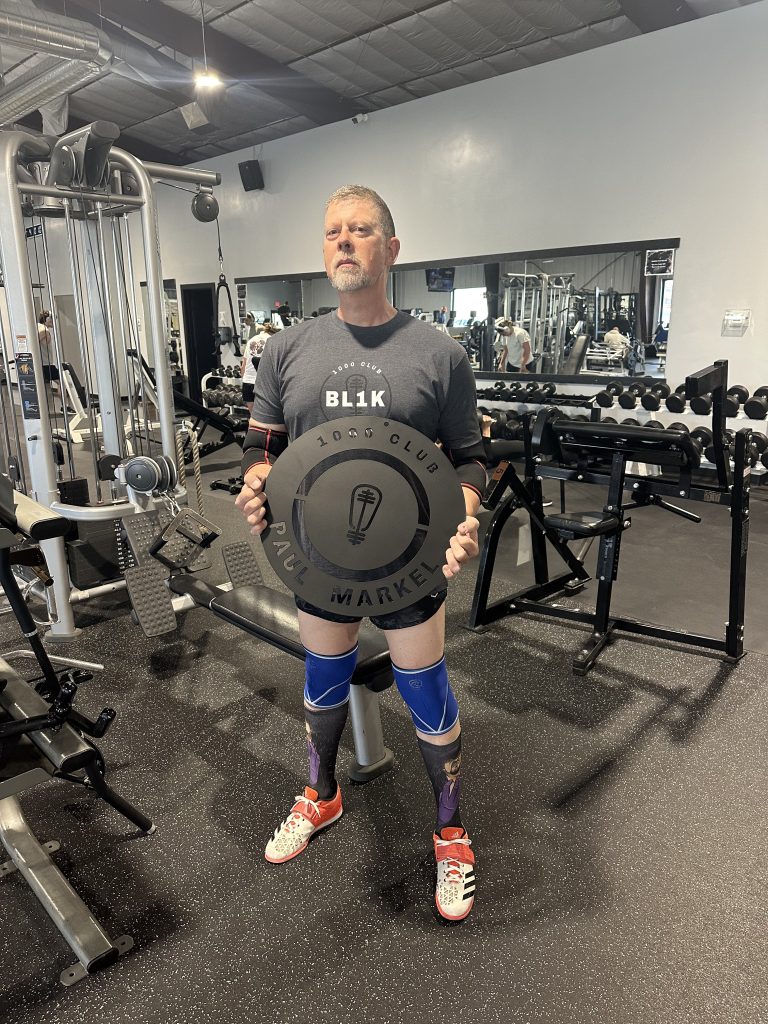Just my personal opinion, but I’d add that knowing how to use that strength and knowing how and when to proficiently use your preferred firearm(s) are more important than merely being strong.
Training: You are the Operating System for Whatever Firearm You Choose to Use.
“Strength makes everything better.” Ryan “Matt” Reynolds said to the group of students gathered for the “Fight Strong” class in Camden, Tennessee at the Tactical Response headquarters. A couple of weeks prior, James Yeager had called me and said, “Matt Reynolds is coming up to do a strength class. You and Jarrad need to get your asses up here.” Having complete respect for James, I told him that we would be there.
At the time I was working out regularly in the gym that Jarrad and I were running in Biloxi, Mississippi. I would run on the treadmill, do heavy bag work, lift dumbbells, and even spar often, despite being well north of forty. I wondered, based upon my decades of exercise experience, if there was much I could learn in the class. Nonetheless, I parked my ego and made the trip. It would turn out not only to be truly beneficial, but it quite literally saved my life.
Strong People are Harder to Kill
The quote comes from Mark Rippetoe and was from an article he wrote for the Crossfit Journal, of all things. The full quote is, “Strong people are harder to kill than weak people, and more useful in general.”
I recall Matt sharing that wisdom with us during the first hour of the class. He also went on to say that, “Strength makes everything better, whether that’s sports, shooting a gun or just living your day to day life.” Strong people survive assaults, car wrecks, and disease better than weak people do.
Naturally, the primary focus of the training at Tactical Response was, and is, teaching good people to kill bad people during the gravest extremes and to stay alive when external forces are trying to make you a dead person. The Fight Strong class fit into that model perfectly.
For two days, Mr. Reynolds focused on teaching us to correctly perform the core four lifts; squat, deadlift, bench press, and press (overhead/military) using an Olympic-style barbell. Heavy weight wasn’t stressed, but exact form was. The lesson was simple…good form leads to heavier weight, but heavy weight doesn’t lead to good form.
I left Camden on Sunday evening with an entirely new outlook on strength training. Despite my year playing high school sports, my time in the US Marine Corps, and hundreds of hours in a martial arts gym, no one had ever taken the time to show me the correct way to perform the aforementioned lifts. The old advice was always, “You guys need to hit the gym,” but never did anyone stress the importance of perfect form when it came to developing true skeletal muscle.
Starting the Journey
On the following Monday afternoon, I took a top-bound spiral notebook and wrote the words; “Squat, Press, Bench, Dead” at the top along with a space for the date. Matt had stressed that of all the barbell exercises, the squat was the most important with deadlift being next and the arm exercises following. “We squat every session.” Reynolds stated, “For our program, there’s no such thing as a dedicated leg day. Every day is leg day.”
Following the training I was given, I put 135 pounds on the bar and squatted “3×5”, that is three sets of five reps, all while trying to focus on doing it exactly as Matt had instructed. Then I pressed. Then I set up the bar and deadlifted. That was day one.
For the next year or so, I dedicated myself to the training. The Barbell Logic Online Coaching program allows the end-user to video their sessions and send the videos to a coach for critiquing. At first Matt coached me, but as his time commitments grew stricter due to his need to grow his company, he passed me off to one of his coaches.
New lifters are put into what is called “linear progression.” This program adds five pounds to each lift for each session (three times a week). In order to see success you need stress. That’s the weightlifting part. You need recovery. That comes from nutrition (protein), sleep, and time for the muscle to repair and then you see the adaptation or hypertrophy.
Despite requirements on my time, I made the commitment to view strength training as a priority in my life, not as a hobby. Hobbies are what we do if and when we have time. Training is something we make the time to do, even when we don’t feel like doing it.

For a couple of years I dedicated myself to the program and can testify that I gained more real, genuine skeletal muscle than I ever had in my life, including my active duty time. I started hitting big PRs (personal records). I recall deadlifting 300 pounds. Deadlift was something I had never done because I didn’t think it was important. I moved to 350 and then to 400 pound deadlifts despite being north of 50 years old. My squat training sessions were in the 300s and I hit a PR of 375 for a single. Everything was going great…until it wasn’t.
Saving My Life
Before my 52nd birthday, I knew something was wrong. I won’t belabor the story, but after numerous tests and scans, I got the phone call. In short, the doctor informed me that I had cancer. I hung up the phone and digested that for a moment. That day was a programmed lifting day and so, instead of having a pity party for myself — there would be plenty of time for that — I went downstairs to my home gym and climbed under the barbell. That session was different. I wasn’t lifting for the ego of aesthetics, I was lifting to save my life.
What no one tells you is that most people don’t actually die from the cancer itself. What happens is that the cancer treatment; radiation, chemo, etc., weakens the body to the point that it can’t recover and then you die. Cancer doctors give lots of advice about trying to keep eating so you don’t lose weight or muscle mass. Not one of them ever told me to lift weights.
Nine months after my diagnosis, I was fifty-plus pounds lighter and my body had been beaten up by the treatment, but the skeletal muscle that I had put in the bank paid huge dividends. The cancer and the treatments had worked in concert to destroy my body, but the strength that Matt Reynolds, and by extension James Yeager, had helped me develop contributed to my still being here on Earth to tell this story. I received the all-clear, no cancer report.
You are the Operating System
While I lost some time in the gym from hospitalization and being flat on my back, I got back into the gym and returned to barbell training as soon as I was able. This time I had to start out with an empty bar. Thanks to the encouragement from Matt and my personal coach, Graham, I started to put more weight back on the bar and restore more muscle to my frame.
I followed the programming that they gave me and picked back up, logging hundreds of sessions.
A few years ago, I was made aware of the BL1K Club that Barbell Logic was promoting. Clients who successfully stick to the program and complete 1000 programmed training sessions are rewarded with a laser cut steel plaque to commemorate the accomplishment. Two weeks ago, when I returned home from a training trip, my plaque was waiting for me.

While the BL1K Club technically represents 1000 complete sessions, what it also translated to was seven-plus years of dedicated effort and innumerable times when I didn’t feel like it…but made myself do it anyway. Sometimes it meant finding a strength training gym to use on the road so I wouldn’t fall behind. Often it meant working through the strains and pulls that set the progress back. It meant parking my ego and lifting an empty bar when that was all I could do.
So, that’s my story. Why am I telling you? I’m telling you because you need to understand that you are not too old or too broken to get strong. Genuine skeletal muscle is the organ of longevity. Strong people are harder to kill. Cancer tried to kill me, but I was stronger than I had ever been and it failed.
You are the operating system for whatever firearm you choose to use. No amount of fancy add-ons or custom features can make up for a weak body. Do you want to be a better shooter, competitor, operator, etc? If so, you need to acknowledge that strength makes everything better.

